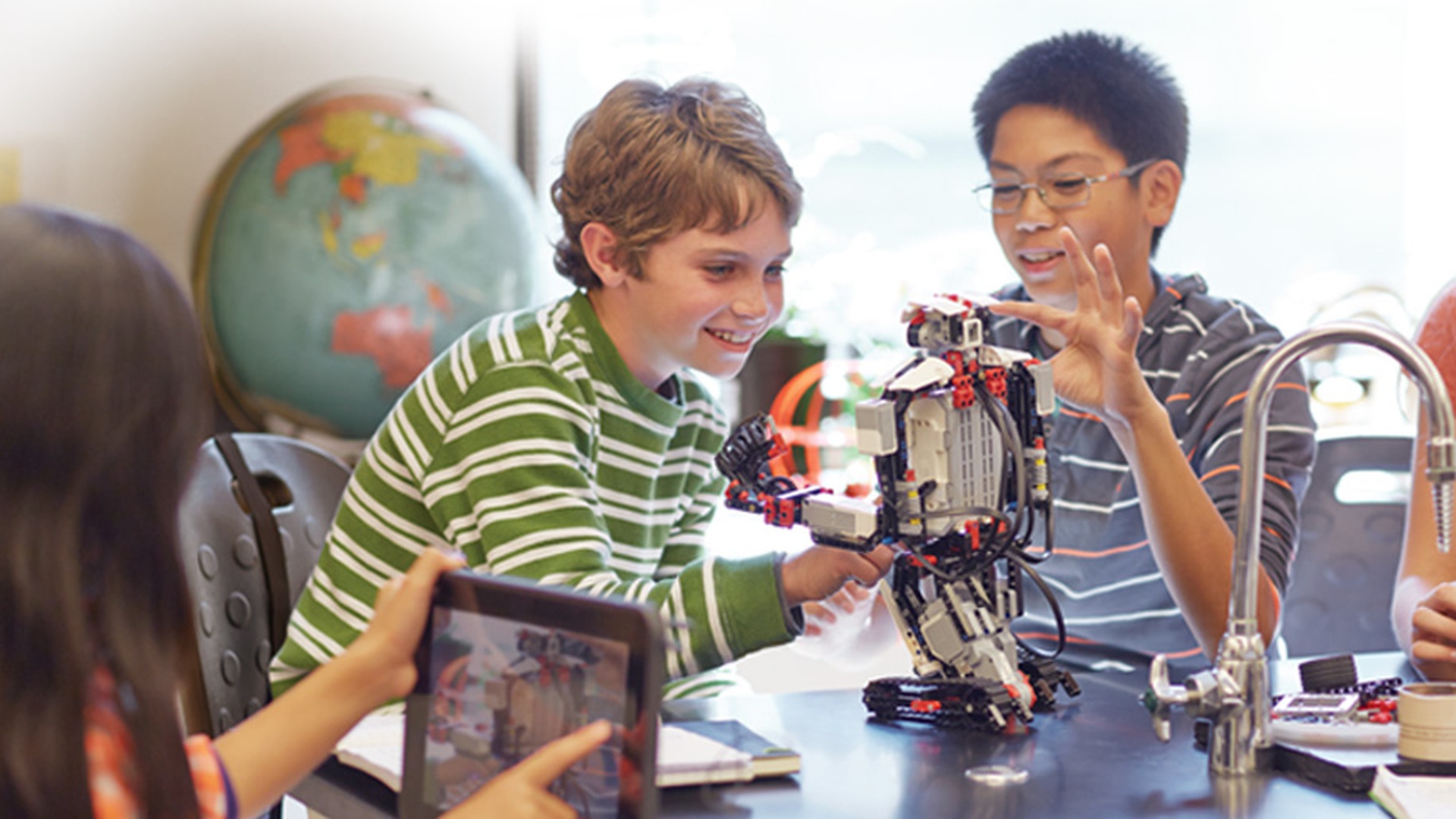Schools look to virtual reality and robotics to boost student learning
The results of BT’s Tech Factor 2017 competition revealed that schools are increasingly looking to bring new, sophisticated technology products into the classroom, in particular Virtual Reality headsets, robotics and coding tools, and sound recording equipment.
BT Tech Factor annual competition reveals school technology ‘wish lists’
The results of BT’s Tech Factor 2017 competition revealed that schools are increasingly looking to bring new, sophisticated technology products into the classroom, in particular Virtual Reality headsets, robotics and coding tools, and sound recording equipment.
Schools requesting these forms of technology were up from 2016, which saw a focus on products like cameras, fitness trackers, and drones. This year, the majority of schools asked for tablets or laptops, while over a third asked for products associated with robotics, coding and drones. The number of schools asking for virtual reality technologies increased threefold from 2016, as a clear trend for using VR headsets to enhance learning emerged over the last twelve months.
BT’s CEO of the BT Shop, Helen Slinger, said: “The number of schools requesting more powerful desktop computers is consistently high, as schools look to run more advanced art and design programmes, animation software, and provide support for virtual reality – with all of these requiring increased processing power. It’s particularly fascinating to see that the interest in virtual reality has grown significantly since last year’s competition.
“Helping school children to build the digital skills they need for the future and introducing these kinds of technologies to the classroom is a core part of our ambition to reach five million children with our Tech Literacy programme by 2020.”
The winners of the competition will be able to spend their prize money in the BT Shop.Open Academy in Norwich won a £10,000 prize to kit out their IT suite with new high-spec computers, enabling their students to work on new parts of the national curriculum including coding. The Academy also runs the innovative ‘Project Refurb’ initiative which shows children how to repurpose older computers to give back to the community.
The two runners up, who will each receive £5,000 to spend on technology equipment, will purchase virtual reality headsets and interactive whiteboards (Tottington Primary in Greater Manchester), and a suite of Apple Mac computers for use in creative media and design classes (Brownedge St Mary’s Catholic High School in Lancashire).
The competition will also award further schools with a series of partner-sponsored prizes from Microsoft, HP, Kyocera, Epson, Fujitsu, Kensington and Brother who are adding their support by donating prizes and giving more schools the chance to win tech.
The Tech Factor 2017 competition invited schools to demonstrate how they can use technology to enhance learning and ensure students are armed with the digital skills they need for the future. The competition is part of BT’s wider Tech Literacy initiative to inspire young people in the UK to embrace the role technology plays in their lives. Also, with its Barefoot Computing Project, BT is currently offering free teaching-resources and volunteer-led training workshops, designed to help primary school teachers become more confident when teaching computer science and computing skills.
Ends
About the Barefoot Computing Project
The Barefoot Computing Project was created in 2014 by a coalition of partners, including the Department for Education, the British Computer Society, BT and Raspberry Pi. It gives primary school teachers free resources and training workshops on using the key concepts that underpin tech literacy.
To find out more, access the resources or book a workshop visit www.barefootcas.org.uk
About Tech Literacy
Young people today grow up surrounded by tech. But too few know how it actually works, or the role it plays in their lives. They are often passive consumers rather than active creators. That matters in a digital world where personal and professional prospects are shaped by technology. So we need to build a culture of tech literacy starting with the next generation, setting young people up with the understanding and abilities needed to shape their futures.
Find out more at www.techliteracy.co.uk
Notes to editors
Part of the BT Group, BT Business Direct Ltd is an IT hardware and software reseller based in Bolton. We support education establishments, the public sector and large organisations across the UK with all their computing, networking and IT needs. We work with other parts of BT and the world’s leading brands to provide our customers with end-to-end IT solutions to improve their organisation. http://www.businessdirect.bt.com/
Tech Factor 2016 winners, Little Heath is a special-needs secondary school for pupils aged 11-19 in the east London Borough of Redbridge, England.
Visit: http://www.lheath.net/






